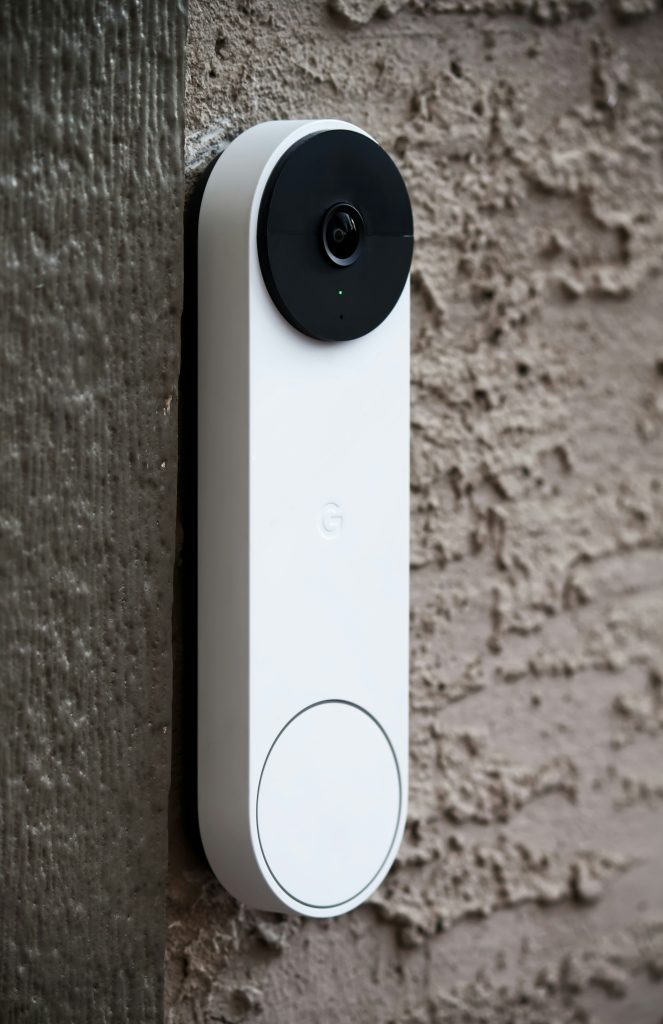Maximizing Energy Efficiency with Home Appliances
Imagine the difference you can make in both your wallet and the planet by maximizing energy efficiency with your home appliances. This article guides you through practical steps on how to save energy with your existing appliances, from refrigerators to washing machines, ensuring you’re not only reducing environmental impact but also cutting down your monthly utility bills. Embrace the journey towards a greener, more cost-effective home as you discover easy adjustments and smart habits that turn energy conservation into your new norm.

Table of Contents
ToggleUnderstanding Energy Efficiency Ratings
When you’re looking to purchase new appliances, understanding energy efficiency ratings can save you significant amounts of money in the long run. Ratings like Energy Star and other systems provide a quick glance at how efficient an appliance is compared to others.
Explanation of Energy Star and other rating systems
Energy Star is a program run by the U.S. Environmental Protection Agency (EPA) that certifies appliances as energy-efficient. Products with the Energy Star label meet strict energy efficiency guidelines set by the EPA. Other rating systems, such as the European Union’s energy label, categorize appliances into efficiency classes from A (most efficient) to G (least efficient). Both systems aim to make it easier for you to choose products that save energy and reduce your carbon footprint.
How to interpret energy efficiency labels on appliances
Interpreting these labels is straightforward once you know what to look for. Energy Star labels, for example, will show you the estimated annual energy consumption of an appliance. Similarly, labels in the EU provide an energy efficiency class and specific energy consumption figures. By comparing these figures and classes, you can make an informed decision about which appliance is most efficient and best for your needs.
The role of energy efficiency in product lifecycle costs
The initial purchase price of an appliance is only part of the story. Energy-efficient appliances may be more expensive upfront, but they typically cost less to operate over their lifecycle. When considering a new appliance, factor in the estimated energy costs over the expected life of the product. This approach helps you understand the true cost of ownership, encouraging a more sustainable and cost-effective decision.
Strategic Use of Kitchen Appliances
Using your kitchen appliances in a strategic way can make a significant difference in your home’s energy consumption.
Optimizing refrigerator and freezer settings for efficiency
Your refrigerator and freezer work non-stop, making them some of the biggest energy consumers in your home. You can optimize their efficiency by setting your refrigerator temperature to 37-40°F (3-4°C) and your freezer to 0°F (-18°C). Avoid placing them next to heat sources or in direct sunlight, as this makes them work harder to keep cool.
Energy-saving techniques for cooking appliances
When using ovens and stoves, match the pot size to the burner size to minimize heat loss. Using lids on pots and pans helps cook food faster by retaining heat. Consider using a microwave or toaster oven for smaller meals, as they use less energy than heating up a full-size oven.
Dishwasher usage tips to lower energy consumption
Run your dishwasher only when it’s full to make the most of the energy used. Choose the air-dry option if available, or open the door after the final rinse cycle to air-dry dishes naturally. Modern dishwashers are designed to efficiently clean dishes without pre-rinsing, so you can skip running the tap before loading.
Laundry Room Efficiency
The laundry room is another area where small changes can lead to big savings.
Choosing energy-efficient washing machines and dryers
When it’s time to replace your washing machine or dryer, look for Energy Star-certified models. Front-loading washing machines are generally more efficient than top-loaders, using less water and energy per cycle.
Cold water washing and its impact on energy savings
Washing your clothes in cold water can significantly reduce the energy used for heating water. Most modern detergents are formulated to work effectively in cold water, ensuring your clothes still come out clean.
The benefits of air-drying clothes
Whenever possible, air-drying clothes instead of using a dryer can lead to substantial energy savings. If you need to use a dryer, make sure to clean the lint filter before every load to maintain efficiency.
Heating and Cooling Smartly
Heating and cooling your home smartly can greatly reduce your energy consumption and bills.
Upgrading to efficient HVAC systems
If your heating, ventilation, and air conditioning (HVAC) system is old and inefficient, consider upgrading to a more energy-efficient model. Look for the Energy Star label to find systems that use less energy to maintain comfortable temperatures in your home.
The importance of regular maintenance for energy conservation
Regular maintenance, such as replacing filters, cleaning ducts, and servicing your HVAC system, ensures it runs efficiently. A well-maintained system uses less energy and can prevent costly repairs down the line.
Smart thermostats: Maximizing comfort and efficiency
Smart thermostats learn your schedule and adjust heating and cooling settings accordingly. They can turn down the heat or AC when you’re not home and return your home to a comfortable temperature before you arrive, saving energy in the process.

Water Heating Efficiency
Water heating is a major contributor to your total energy consumption, but there are ways to make it more efficient.
Selecting energy-efficient water heaters
When it’s time for a new water heater, consider models that are Energy Star certified. Tankless water heaters, which heat water on demand, are also more efficient than traditional tank models.
Adjusting water heater temperature for optimal efficiency
Many water heaters are set to a higher temperature than necessary. Lowering the setting to 120°F (49°C) provides comfortably hot water for most uses and reduces energy consumption.
Insulation and other techniques to reduce water heating costs
Insulating your water heater and hot water pipes prevents heat loss, saving you money. Additionally, fixing leaky faucets, especially hot water taps, can also prevent unnecessary energy use.
Implementing Smart Home Technology
Smart home technology can streamline your energy use, making your home more comfortable, convenient, and efficient.
How smart appliances can enhance energy efficiency
Smart appliances can be programmed to operate when energy rates are lower, and they can be remotely monitored and controlled to reduce unnecessary usage. For instance, smart refrigerators can alert you when they’re left open, and smart washing machines can be scheduled to run during off-peak hours.
The role of energy management systems in the home
Energy management systems give you an overview of your home’s energy consumption, identifying areas where you can improve efficiency. Some systems provide real-time energy use data, allowing you to make immediate adjustments.
Benefits of integrating IoT devices for energy conservation
The Internet of Things (IoT) connects your appliances and devices, enabling them to communicate and operate more efficiently together. For example, smart lights can turn off automatically when no one is in the room, and smart thermostats can adjust based on the weather forecast.
Lighting Solutions
Lighting is an essential part of your home, but it doesn’t have to be a major energy drain.
Transitioning to LED and energy-efficient lighting
Replacing incandescent bulbs with LED or other energy-efficient lighting options can significantly reduce your home’s energy consumption. LEDs use at least 75% less energy and last 25 times longer than traditional incandescent lighting.
The impact of natural light and strategic window usage
Make the most of natural light by opening curtains and blinds during the day, reducing the need for artificial lighting. Consider skylights or solar tubes in darker areas of your home to increase natural light without compromising insulation.
Smart lighting controls to reduce waste
Smart lighting controls, including timers, dimmers, and motion sensors, ensure that lights are only on when needed. These controls can significantly reduce your home’s energy use and extend the life of your bulbs.
Home Energy Audits
A home energy audit is a comprehensive assessment of your home’s energy use and areas where improvements can be made.
The process of conducting a home energy audit
A professional auditor uses specialized tools and techniques to evaluate your home’s energy performance. They’ll check for leaks, examine insulation, inspect the furnace and ductwork, and perform a blower door test to evaluate air leakage.
Identifying key areas for efficiency improvements
Based on the audit, the auditor will identify areas where your home is losing energy and recommend improvements. This might include adding insulation, sealing leaks, or upgrading to more efficient appliances and systems.
Utilizing audit results to make strategic upgrades
Use the audit’s findings to prioritize upgrades that will give you the biggest energy savings. Often, simple changes like adding weather stripping or upgrading lighting can make a noticeable difference in your energy bills.
Investing in Renewable Energy
Investing in renewable energy sources for your home can reduce your reliance on fossil fuels and lower your energy bills.
Solar panels and their role in home energy efficiency
Solar panels convert sunlight into electricity, offsetting the energy you use from the grid. While the upfront cost can be significant, solar panels can dramatically reduce your energy bills and may qualify for government incentives.
The economics of installing renewable energy systems
The cost of renewable energy systems has decreased significantly in recent years, making them a more practical option for homeowners. When calculating the economics, consider the potential savings on energy bills, the lifespan of the system, and available tax credits or rebates.
Government incentives and how they affect your investment
Many governments offer incentives for installing renewable energy systems, such as tax credits, rebates, and feed-in tariffs for surplus energy you return to the grid. These incentives can significantly reduce the payback period of your investment.
Maintenance and Upkeep for Maximum Efficiency
Regular maintenance and upkeep are essential to keep your home’s appliances and systems running efficiently.
Routine maintenance schedule for major appliances
Create a maintenance schedule for your major appliances, including the HVAC system, water heater, and refrigerator. Regular cleaning, servicing, and part replacements can extend their life and efficiency.
Detecting and addressing energy leaks in the home
Check your home for energy leaks, such as drafty windows, doors, and attic hatches. Sealing these leaks with weather stripping or expanding foam can dramatically improve your home’s energy efficiency.
The importance of professional inspections
Professional inspections, especially for your HVAC system and electrical systems, can identify potential efficiency issues before they become costly problems. Regular inspections ensure that your home remains efficient and safe.
In conclusion, maximizing energy efficiency with your home appliances not only saves you money but also contributes to a healthier planet. By understanding energy efficiency ratings, making strategic choices in appliance use, and investing in maintenance and renewable energy, you can significantly reduce your carbon footprint while enjoying the comforts of your home.
Discover how to boost energy efficiency with your appliances, save on utility bills, and protect the planet. Learn practical tips for greener living in our comprehensive guide.
Discover how to boost energy efficiency with your appliances, save on utility bills, and protect the planet. Learn practical tips for greener living in our comprehensive guide.
